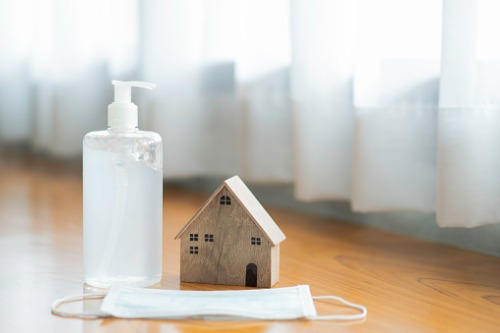

Among the many industries suffering from the dual impact of COVID-19 and severe weather events, few would want to trade places with the real estate sector. Between tenants having difficulty paying rent or trying to break leases, a myriad of rules around COVID-19 safety, volatile construction material and labor costs, and record-breaking hurricane and wildfire seasons, real estate companies are finding it increasingly difficult to manage their risks.
“Our real estate customers have had to contend with fast changing conditions, and it’s really put a premium on flexibility and expertise,” said David Carlson, senior vice president, technical underwriting for QBE North America’s Retail P&C business, which counts real estate as its largest industry by premium. “From an underwriting perspective, there are classic risks, like weather, that are growing more challenging and emerging risks that real estate companies need to manage more effectively.”
One of the biggest challenges real estate companies are facing right now is finding capacity for CAT exposures. Given recent trends, the market is getting more restrictive - carriers are more apt to exclude CAT exposures, or potentially decline to write the whole schedule, which could force the real estate company to split out their CAT-exposed properties. “By contrast, we have experience with CAT exposures and will consider taking on a certain level when it’s part of a broader, geographically balanced portfolio,” Carlson said. “It’s a fairly strong differentiator for us given the state of the market. We are stepping up and meeting that need effectively.”
Part of QBE’s willingness to write a balanced schedule with some CAT exposure is the expertise of its loss control and claims teams. Those teams include dedicated property CAT experts and specialized property loss control staff who look at the preparedness of the insured and help to validate that exposed properties have good controls in place. This involves helping real estate companies develop a written disaster response plan. A comprehensive business continuity plan will include the following: steps for protecting the property, a clear articulation of tenant versus building owner responsibilities, how to retain and manage employees, understanding the supply chain impacts, and alternative accessible off-site locations if their site is destroyed.
“A business continuity plan review is just one of the many services that the QBE team performs,” said Theresa Everett, AVP, claims relationship management lead. “We try to make it both comprehensive and easy by providing a single point of contact to bring all the relevant resources of QBE together for the customer.”
Meanwhile, the economic impact of COVID-19 has made it more difficult to get the building valuation correct. Not having the proper building values can lead to an uncovered or inadequately covered claim, Carlson noted — and surges in material costs, wage inflation and, most importantly, a shortage of labor all increase the amount of money and time it takes to rebuild. “That’s why we constantly track the factors that drive rebuilding costs to help customers stay ahead of the trends in the market,” Carlson said.
“Slips, trips and falls have always been a top general liability risk, from both customers and contractors on premises,” said Carlson. “Since real estate companies often employ a relatively wide range of contractors to manage their property, they need to make sure those contractors and sub-contractors are properly insured. Especially now, due to COVID-19 and the tight labor supply, those contractors may have experienced a high level of turnover, which usually affects the safety culture and quality of work. We will also work closely with our real estate customers to help review their agreements with contractors to help detect whether they are properly indemnified and held harmless.”
The industry is also seeing some bigger, severity-driven claims around security — or lack thereof. QBE helps identify potential security issues or trends. “If we see a potential vulnerability, we will work closely with the property managers to put a program in place,” Everett said, “including advising on what could be done around things like proper lighting, cameras, electronic gates or whatever else may be appropriate for their geographic location.”
Finally, one trend that could develop over the long term is a shift to more mixed-use properties. Carlson said, “we haven’t seen it yet, but if the lessons of working from home during the pandemic result in falling demand for office space, real estate companies may need to convert some office buildings to hold both commercial and residential tenants. That’s a very different type of risk, and adjustments would need to be made to both the safety and response programs as well as possible changes in coverage. It would be especially important to work with an insurer that has deep experience in both commercial and residential properties. QBE will be ready to help.”
